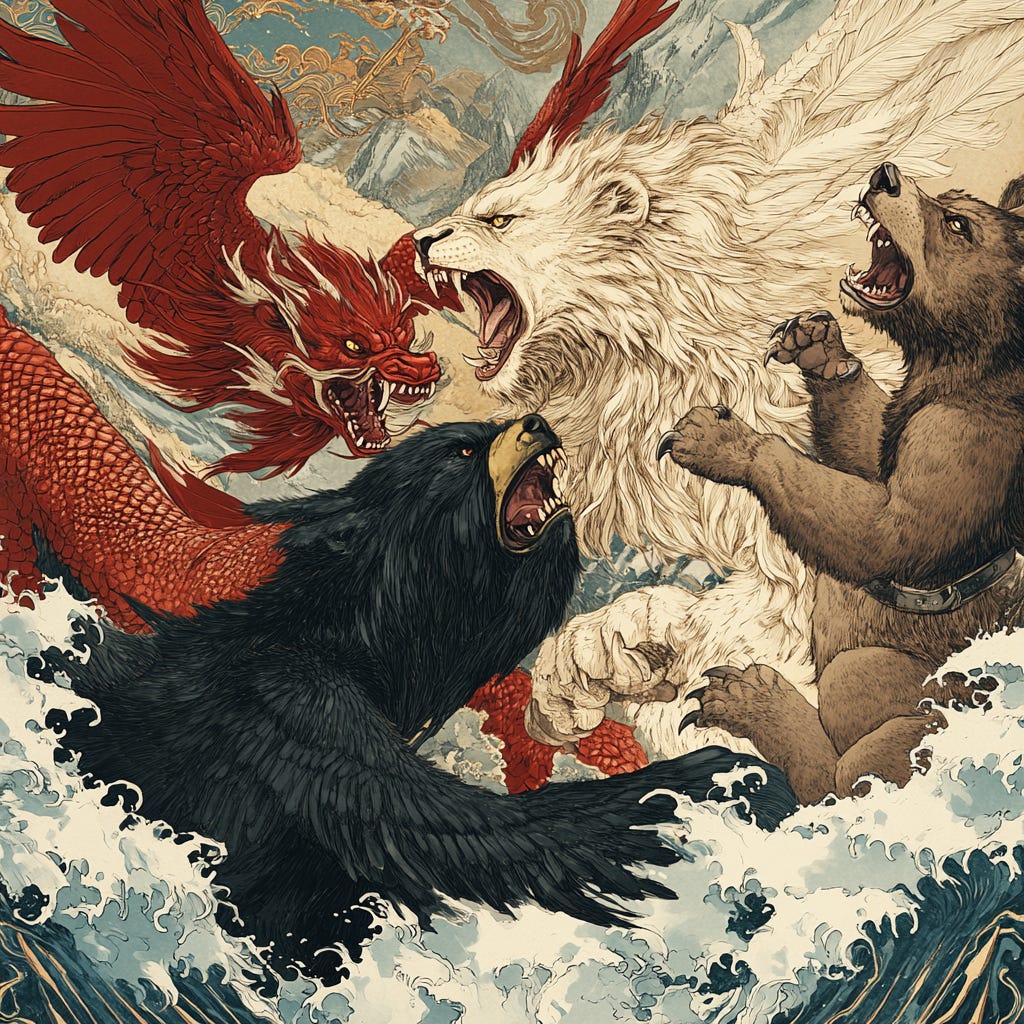Uncomfortable Alignments: What the Iran-Israel War Is Teaching Us About Ourselves
The Iran-Israel war is forcing a reckoning—not just over geopolitics, but over our own ideological reflexes. Beyond the missiles and proxy strikes between these two relatively young nation-states (Israel founded in 1948, the Islamic Republic of Iran in 1979), a deeper imperial contest is unfolding—one that implicates not only military alliances but also our energy dependencies, economic choices, and political blind spots.
As someone who has identified with the left for most of my adult life, I find myself increasingly estranged from much of the rhetoric emerging post–October 7th, 2023. The dogma feels brittle. The refusal to acknowledge Israeli suffering, or to imagine a future in which both Israelis and Palestinians live free of terror, has revealed troubling undercurrents. I've faced backlash from former allies for affirming Israel’s right to exist in peace. But I no longer believe the moral high ground lies in silence or false equivalency.
Years ago, a Jewish friend corrected me when I framed "pro-Israel" and "pro-Palestinian" as oppositional terms. “I'm both,” she said. It wasn’t until the horror of October 7th that I truly understood what she meant—that solidarity isn’t zero-sum, and real peace requires nuance.
The Western right has long placed Islamic extremism at the center of its security narrative, particularly since the Soviet threat waned. I grew up during the tail end of the Cold War, watching films like Red Dawn and Top Gun, immersed in the fear of global communism. Yet while our imaginations were fixated on Moscow, the U.S. was busy fueling militant Islamist groups to undermine Soviet influence. These choices laid the groundwork for the War on Terror, a decades-long quagmire that cost lives, credibility, and global goodwill.
Meanwhile, few noticed the quiet rise of China.
By the time I read Paul Kennedy’s The Rise and Fall of the Great Powers in high school, the writing was already on the wall. Kennedy foresaw China’s ascent—built not on military bravado but on strategic patience and economic leverage. While the U.S. was mired in Afghanistan and Iraq, China was building quiet partnerships across the Global South, including with Iran.
Many on the Western left sensed that U.S. interventions were more about oil than terror. I was among the millions who protested the Iraq War in 2003, believing in a post-carbon future rooted in justice and climate responsibility. But while we marched, China also said no—to war, yes, but not to influence. Quietly, it backed regimes like Iraq and Iran, built economic dependencies, and used diplomatic charm to cultivate soft power in places the Soviets once touched.
This is the new imperial terrain: while Russian posturing makes headlines, it is China that is playing the long game—with fewer speeches, fewer sanctions, and far more success.
Consider its role in the Middle East. In contrast to Moscow’s belligerence, Beijing uses deference and development deals. China recognized the Palestinian cause early and invited Hamas leadership to forums that the West boycotted. In 2021, China and Iran signed a 25-year cooperation agreement encompassing economic, strategic, and military collaboration. The Belt and Road Initiative runs straight through territory once contested by Cold War superpowers.
And still, human rights activists—despite being some of the only ones sounding alarms—often miss the broader strategy. They rightly critique China’s treatment of Uyghurs and Tibetans, but often overlook how the PRC props up authoritarian regimes under the guise of non-interference and “respect for sovereignty.” This isn’t neutrality. It’s soft imperialism.
So where does that leave us?
We’re still in the Cold War—just not the one we think. It has mutated. The ideological binaries of the 20th century have collapsed into a new realpolitik, where climate policy, supply chains, religious extremism, and authoritarian capital all converge. As the U.S. flounders in dysfunction and China expands in discipline, the world edges toward a decisive fork in the road.
The question facing every free person is no longer which empire to root for—but what kind of world we want to live in. Do we resign ourselves to authoritarian pragmatism? Do we cling to a broken liberalism? Or can we imagine—and fight for—something better?
The Iran-Israel war is not just a regional conflict. It is a mirror. And it’s asking each of us: what do we actually believe?




